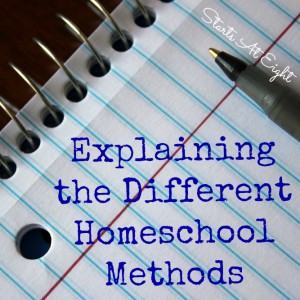Montessori Homeschooling – The Early Years
While there are many families that use the Montessori homeschooling method throughout their years of homeschooling, it is more often found in the preschool and elementary years. For the purpose of our discussion today we will refer to these early Montessori years as “Montessori Time”.
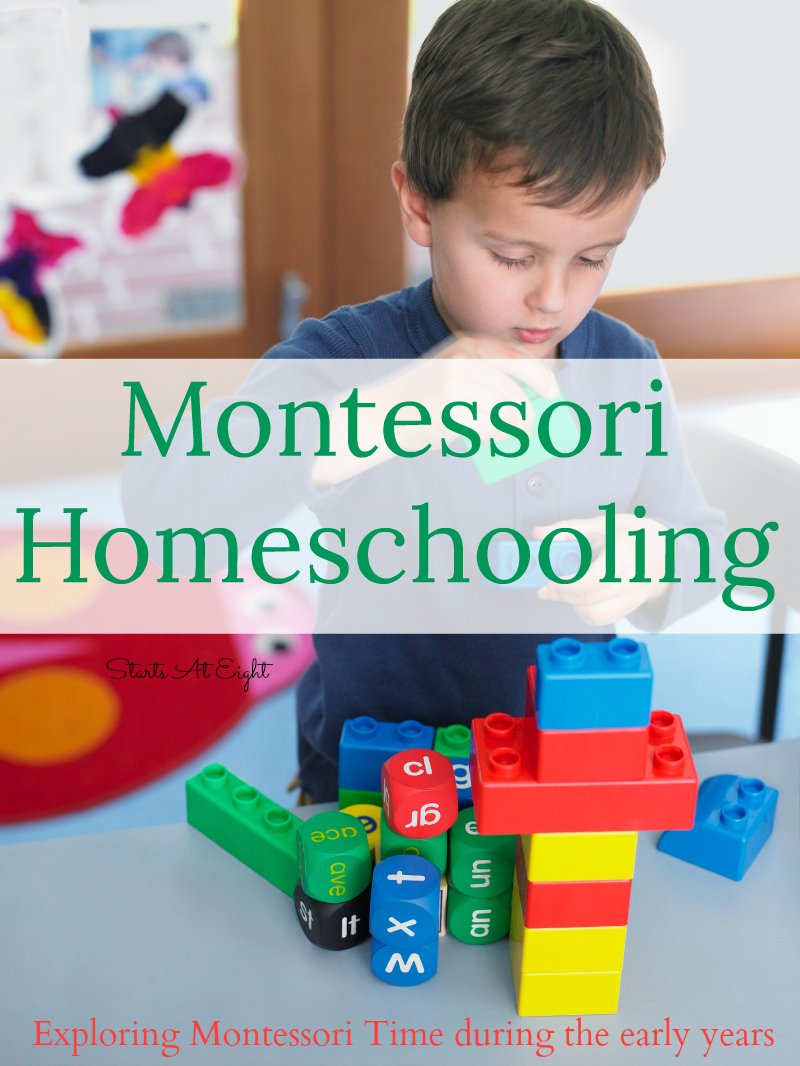
Flashback to Montessori Time
Montessori time is one of the most wonderful times. It is special because it is a journey in which children explore a complete new world. The Montessori method is a process which emphasizes play, where children learn to become independent and discover themselves. It as an educational journey accompanied by fun filled activities. The main focus of Montessori is to enhance kid’s creativity and positive character.
Montessori Homeschooling – The Early Years
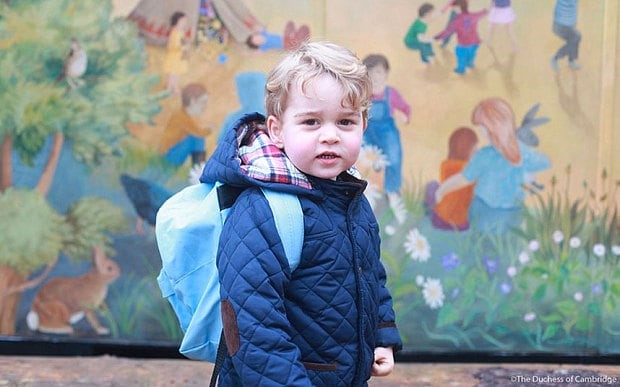
Taking a more in-depth look at Montessori time, we can divide it into following:
1. Learning phase of life
Montessori Time is the most exciting learning phase of life. Kids get the freedom to be themselves and do all the fun activities. Children in this phase have a growing brain and they grasp everything they are taught. Kids retain and practice new things they learn from their friends, parents, and teachers. Like for Example learning how to sit down in a chair and table at Lunch time and learning how to feed themselves.
2. Exploring world of kids
Kids in Montessori Time age range are very curious about their surroundings, toys and people. They spend most of their time exploring and learning a lot of new things which can be kept in a Montessori classroom, and even at home. Most Montessori often practices shuffling of toys and activities for kids, so they do not get bored. Outside teachers of Montessori are usually very friendly and willing to answer all the little queries in an intelligent manner. (Just as we as parents do with our children.)
3. Group Activities
One of the most important things a child learns during the Montessori Time is to socialize with different children. Playing together in groups not only improves the ability to interact with other kids but also gives them a chance to express themselves. The kids playing in a group learn from each other and are guided by the adults. Such activities also train them to become part of this society and understand how to manage anger & emotions. They also learn to have patience and care for others. For example a small group of 5 students sit together on a table to play with 2 cutter and play dough learns to share toys and wait for their turn patiently.
This can offer a great opportunity Montessori homeschooling parents to gather. Maybe you start a Montessori group where you take turns at each other’s homes offering group activities for the kids to engage in and time for the parents to gather together as well.
4. Puzzle and Matching Games
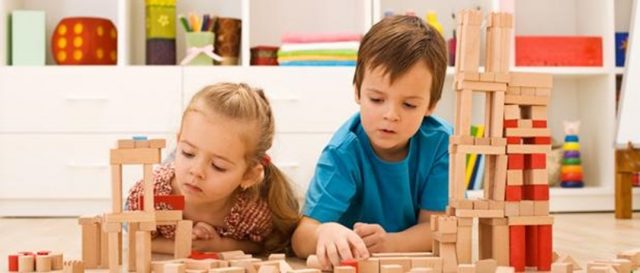
Puzzle games are also an important element of Montessori Time for kids. These games are interesting as well as full of learning. These games enhance the intellectual skills of young kids. They learn to associate and strive hard to gather the missing chunks to complete the pictures. Such activities encourage kids to do brain storming and develop reasoning and logical thinking at an early stage of life. Kids who play puzzle games develop logical association between different things in their environment which make them quick leaner in later stage of life. Moreover, these kids have higher level of critical thinking as compared to those who are not involved in puzzle games and activities. For example playing with transportation vehicles floor puzzle the child get an opportunity to think and join the missing part of tractor or an airplane.
5. Sensory Activities
These activities include different things which are aimed at development of Montessori kids. Sensory activities focus on improving the fine and gross motor senses in children.
The sensory activities which are practiced in most of the Montessori’s are:
- playing with play dough
- drawing
- dish soap foam
- making bubbles
- shaving cream play
- Sensory tables are a great way to accomplish this!
These activities are entertaining as well as kids learn so many skills like making connections between missing things. The level of thinking is improved by involving in such activities. For example, playing with play dough the teacher talks about its consistency whether it’s hard or soft this enhances the sensory skills of a child and help then differentiate between different objects.
6. Basic Learning Activities
Parents can help kids to learn different useful activities which are practiced in daily life.
Basic Learning activities include:
- Self-caring and Grooming (Example wearing clothes and shoes).
- Filling and drinking water in a glass.
- Choosing preferred fruits and eating food from spoon.
- Self-awareness (Potty and pee training).
- Self-control over emotions.
- Sharing of toys and books.
- Organizing books and cleaning up Toys.
- Packing of bags.
- Pretending and serving food in kitchen corner.
- Polishing and cleaning of shoes.
- Sleeping independently.
- Learning Pincer grasp and painting.
- Learning names of various fruits and vegetables.
- Learning alphabets and numbers
- Learning nursery rhymes
These activities are useful for Montessori kids because they learn to survive independently. These activities are taught to Montessori kids in order to prepare them for next level of primary school. At Montessori they get plenty of time to adapt and love the school environment. By the time they enter the primary school they are well trained and well behaved kids.
7. Basic Life Exercises
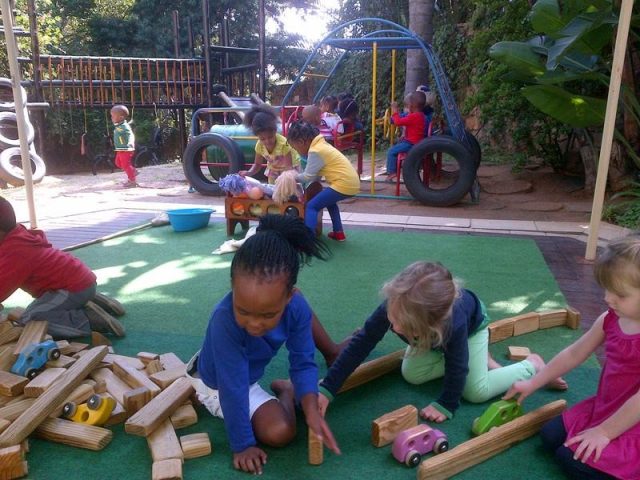
Physical Exercise is important to improve the growth and development of kids.
Physical activity ideas:
- riding a bike/tricycle/scooter
- climbing spider web
- crossing monkey bars
- rock climbing
- running
- playing with balls
- jumping/trampoline
Activities like these help kids to play as a team and improve their physical growth and development.
Montessori time plays an important role in developing the personality and good character of children. Parents can facilitate this by laying down strong roots, encouraging and motivating their children to improve their physical, mental and emotional skills which build the blocks in becoming an independent adult in the future.
